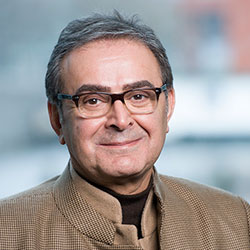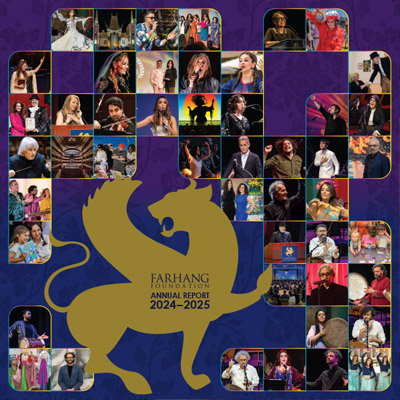Constitutionalists Sans Frontières

Free Event
The Iranian Studies Initiative at UCSB and Farhang Foundation invite you to
Constitutionalists Sans Frontières
Drama as a Means of Conveying the Need for Social and Political Changes to the Common People: From Baku to Bukhara en Route to Tabriz and Tehran
a free live lecture event by Touraj Atabaki - Leiden University
This event is a part of a lecture series on
Iranian Art and Literary Exchange Between Iran, Transcaucasia, Central Asia, and Russia in the 20th Century.
This series is co-organized by the Graduate Center for Literary Research, University of California, Santa Barbara and with the support of the Gramian-Emrani Foundation and Duncan and Suzanne Mellichamp Funds.
In the historiography of Iranian constitutionalism and the constitutional revolution, the reformist movement is treated as a receptive movement crafted by the ideas originating chiefly from nineteenth-century Western Europe or Russia, with no dependencies on West and Central Asia, excepting the Ottoman Empire. In the case of Transcaspian connections, the historiography of Iranian constitutionalism has been usually limited to its reference to a few nonreciprocal links between Iran and the northern frontiers, where mainly the Caucasus was in charge of producing revolutionary literature or dispatching revolutionary agents to the south in order to save the constitution from being slaughtered by Qajar despotism.
In this talk, I review the presentation and practice of drama as a new genre for spreading the reformist movement of the early twentieth century in the Caucasus and Central Asia and Iran. My observation in this study is derived from highlighting historical examples at specific moments, rather than adopting a checklist approach, and covering as many spaces as possible over a certain period of time.
About Dr. Touraj Atabaki
 Touraj Atabaki is Research Fellow at the International Institute of Social History and Emeritus Professor of Social History of the Middle East and Central Asia at Leiden University.
Touraj Atabaki is Research Fellow at the International Institute of Social History and Emeritus Professor of Social History of the Middle East and Central Asia at Leiden University.
He studied first theoretical physics and then history in Birckbeck College, University of London and then had his PhD in 1991 from University of Utrecht. Atabaki worked at Utrecht University, University of Amsterdam and Leiden University where he held the Chair of Social History of the Middle East and Central Asia. Atabaki’s earlier research interest encompassed historiography, ethnic studies and the practice of authoritarianism in Iran, the Ottoman/Turkey and everyday Stalinism in Soviet Central Asia and the Caucasus. However, in the last ten years his research interest has focused more on the labour history and the history of work and has coordinated a project on the hundred years’ social history of labour in the Iranian oil industry, funded by the Netherlands Organisation forScientific Research. Touraj Atabaki has written extensively on the nineteenth- twentieth century history of Iran, Turkey, the Caucasus and Central Asia.
Atabaki has published twenty books and numerous articles and book chapters. His latest books are:
- Social History of the Iranian oil Industry (Cambridge: Cambridge University Press, forthcoming).
- Victims of Their Faith. The Lives and Fates of Iranian Political Activists and Migrant Workers in the Interwar Soviet Union. Co-author Lana Ravandi Fadaii (Moscow: Russian Academy of Sciences, 2020) Second Edition.
- Working for Oil. Co-editors Elisabetta Bini, Kaveh Ehsani (London: Palgarve Macmillan, 2018)
Help support Farhang Foundation’s free programming!
Event Details
| Event Starts | 02/26/2022 – 11:00 am |
| Event Ends | 02/26/2022 – 12:00 pm |
| Individual Price | Register for Free |
| Location | Online |







